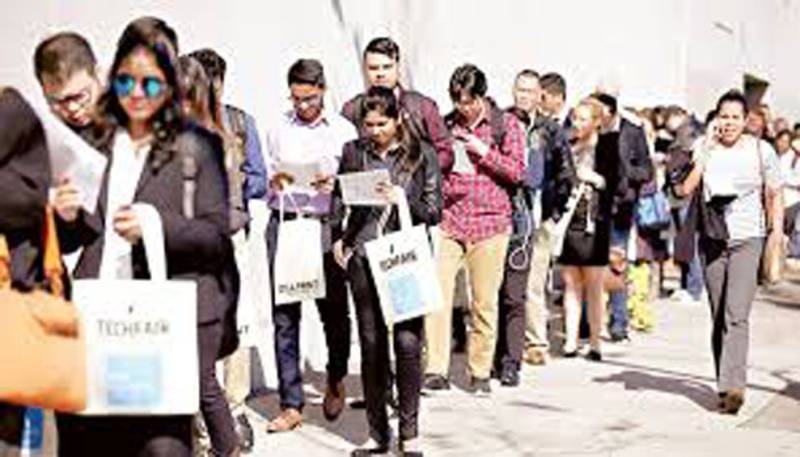WASHINGTON - US job growth slowed sharply in May and wages rose less than expected, raising fears that a loss of momentum in economic activity could be spreading to the labor market, which could put pressure on the Federal Reserve to cut interest rates this year.
The broad cool-off in hiring reported by the Labor Department on Friday was before a recent escalation in trade tensions between the United States and two of its major trading partners, China and Mexico. Analysts have warned the trade fights could undermine the economy, which will celebrate 10 years of expansion next month, the longest on record.
Adding a sting to the closely watched employment report, far fewer jobs were created in March and April than previously reported, indicating that hiring had shifted into a lower gear. The labor market thus far has been largely resilient to the trade war with China.
“Today’s report makes a cut more likely, and supports our view that the trade tensions will ultimately slow growth enough for the Fed to respond in September and December with cuts,” said Joseph Song, an economist at Bank of America Merrill Lynch in New York.
Nonfarm payrolls increased by 75,000 jobs last month, the government said. It was the second time this year that job gains dropped below 100,000. Economists polled by Reuters had forecast payrolls rising by 185,000 jobs last month. Job growth in March and April was revised down by 75,000.
President Donald Trump in early May slapped additional tariffs of up to 25% on $200 billion of Chinese goods, which prompted retaliation by Beijing.
Last week, Trump said he would impose a tariff on all goods from Mexico to force authorities in that country to stop immigrants from Central America from crossing the border into the United States.
Talks to prevent the duties from kicking in at 5% on June 10 continue. Fed Chairman Jerome Powell said on Tuesday the U.S. central bank was closely monitoring the implications of the trade tensions on the economy and would “act as appropriate to sustain the expansion.”
Trump, who has routinely tweeted about the strong labor market, made no comment about May’s weak hiring, but defended duties on Chinese goods. White House economic adviser Kevin Hassett told Fox Business Network that bad weather in the Midwest was to blame and described the meager job gains as “a little bit of a blip down.”
Economists, however, said there was nothing to suggest the weather was the culprit.
“The weakness in job growth was broadly experienced across industry groups and not obviously driven by distortions such as weather or strikes,” said Michael Feroli, an economist at JPMorgan in New York.
U.S. House of Representative Speaker Nancy Pelosi, a Democrat, said the employment report was “a disturbing sign that the administration’s disastrous special interest agenda is hollowing out our economy.”
Following the report financial markets priced in a rate cut as early as July and two more later this year. Economists, however, believe the Fed will probably wait for more signs of labor market weakness and clarity on the trade issues before easing monetary policy. Fed officials are due to meet on June 18-19.
“Fed officials are likely to remain cautious at the June meeting and keep all their options open,” said Michael Hanson, head of global macro strategy at TD Securities in New York.






